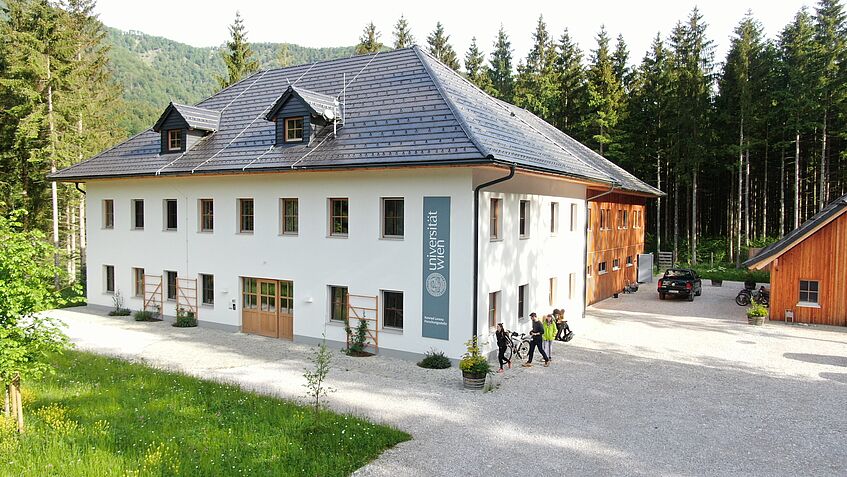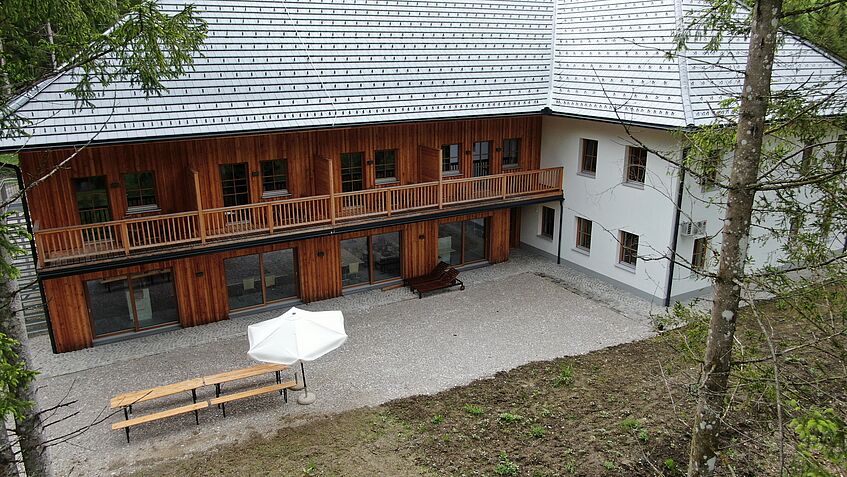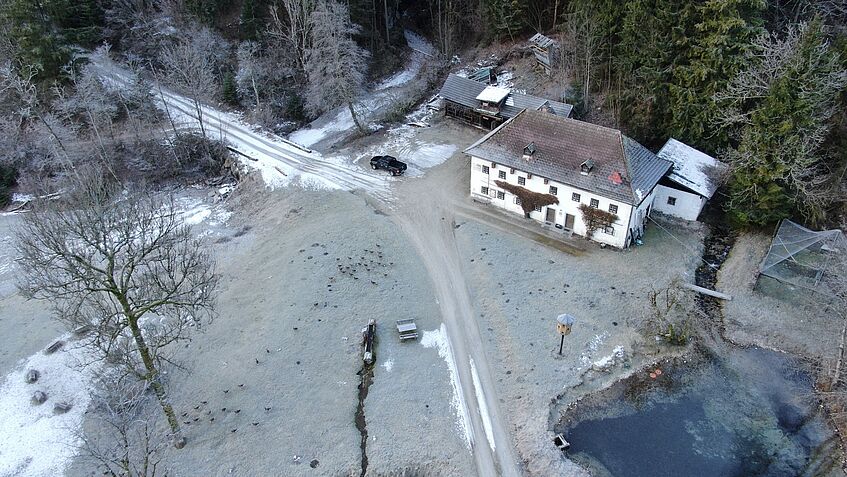The Konrad Lorenz Research Center
Mission statement and core activities

Picture: Shane Mc Phearson

Picture: Shane Mc Phearson
The Konrad Lorenz Research Center for Behavior and Cognition (KLF) is a core facility of the University of Vienna. We study animal behaviour using evolutionary, phylogenetic, mechanistic and developmental frameworks. Mostly, we observe individually marked animals in the wild to understand which behaviours confer a survival benefit in the everchanging world of animals.
We lead and participate in rewilding programs. Locally extinct species can be brought back into restored environments to enhance biodiversity, with long-term monitoring of species interactions and restored ecosystems. We use technology interfaces such as drones, biologgers like GPS, passive and directional sound recorders, and facial recognition software to model movement ecology, communication and cognition. Our long-term population monitoring of common to critically endangered species helps us understand how environmental and social factors shape population trends. Our detailed focus on individual animals often studied across decades, from egg to free-flying adults in the wild, provides core fundamental knowledge about the animals' life history, reproductive success and survival.
The insights from our fundamental research in biology have special application for the fields of conservation biology, sustainability science, and citizen science.

Picture: Shane McPhearson
On 12 Dec 1973, Konrad Lorenz, Nikolaas Tinbergen and Karl von Frisch were awarded the Nobel Prize in Physiology and Medicine. Lorenz had already moved his geese into the valley that year, and the KLF was established during 1974. Between 1990 to 2018, Prof. Dr. Kurt Kotrschal was director of the KLF followed by Prof. Dr. Sonia Kleindorfer since 2018.
From 1990 to 2012, the KLF operated solely under the legal framework of the “Friends of the Konrad Lorenz Research Center” (Verein der Förderer der Konrad Lorenz Forschungsstelle). Since 2012 the KLF is also a Core Facility for Behaviour and Cognition of the University of Vienna. KLF activities continue to be supported by the Friends of the Konrad Lorenz Research Center, a charitable and non-profit association.
